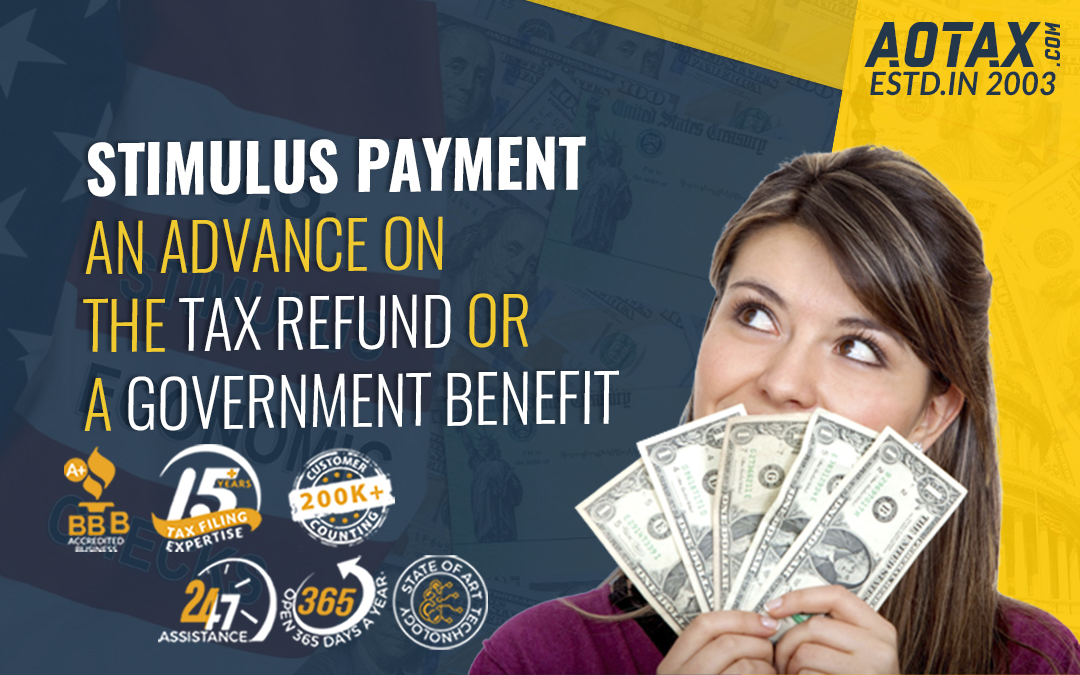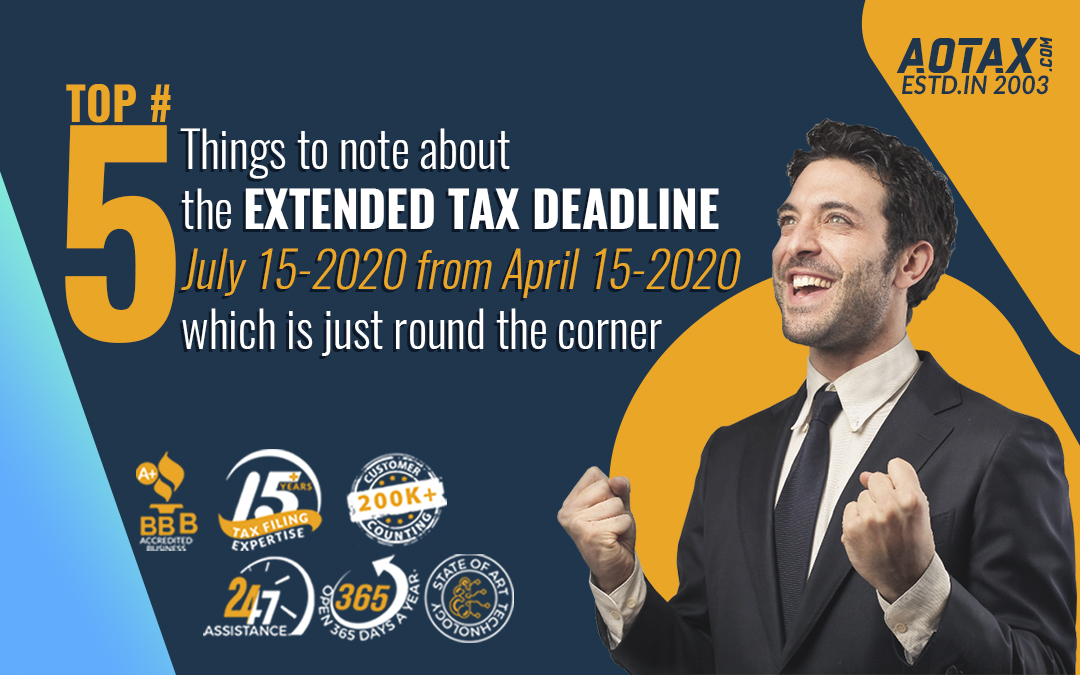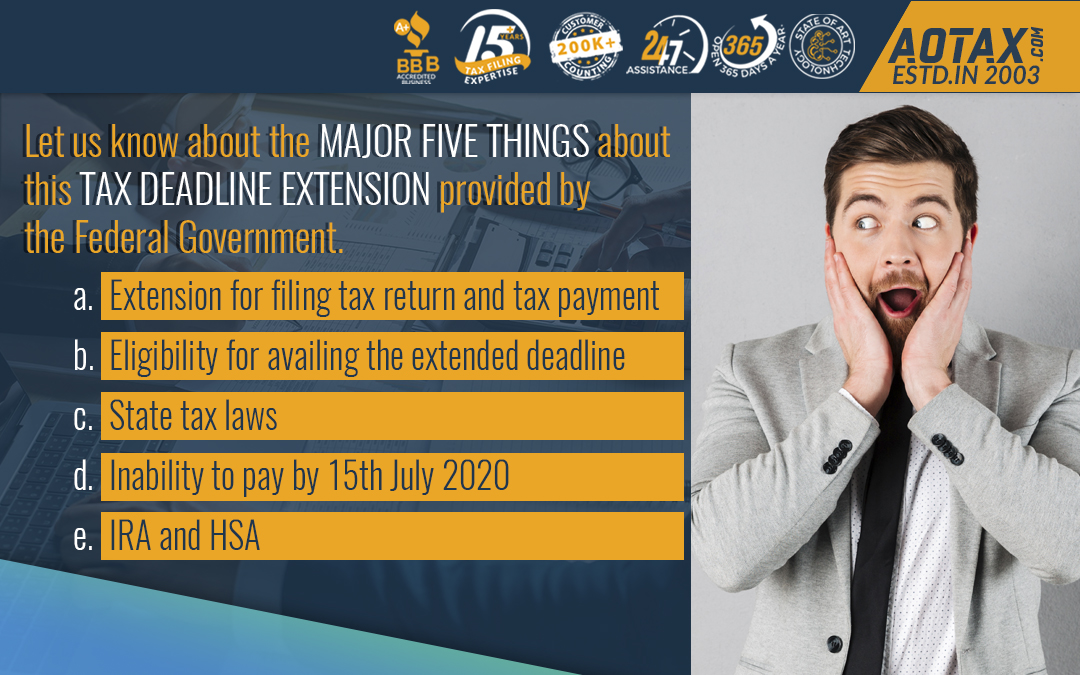The top 10 FAQs answered for taxpayers in the US-2020.
The top 10 FAQs answered for taxpayers
in the US-2020.

There have been various changes in the tax laws due to the outbreak of the pandemic COVID-19. Due to the adverse impacts of the pandemic, millions of Americans have become unemployed and are facing a huge financial crisis. To alleviate the situation of economic distress which is being faced by the Americans the IRS has introduced various changes into the tax laws for the year 2020.
The major change which was announced by the IRS was the postponement of the due date for filing federal income tax returns and for making the payment of the Federal Income tax. This due date was on 15th April 2020 which was postponed to 15th July 2020. Moreover, there would be no accrual of any interest or no penalties for failure in payment of taxes or failure of tax return filing by 15th April 2020. The interest accrual and penalties will begin after 15th July 2020. This relief has been made available for all types of taxpayers such as individuals, an estate, a trust, a corporation, or any business entity.
Now, since there have been such important tax reforms introduced by the IRS there must be several queries in the minds of the taxpayers. So, let us have a look at some of the major queries of the taxpayers related to the reforms in the tax laws.
- What do I need to do to avail of the extension of tax return filing due date from 15th April 2020 to 15th July 2020?
No, you do not have to do anything to avail of the extension of the tax return filing due date to 15th July 2020. You will not have to file any additional forms or contact the IRS to avail of this relief in the tax filing deadlines. If you have to pay any taxes that are due, you can do that by 15th July 2020. After 15th July 2020, if you need a further extension then you would have to file a request for an automatic extension.
- Is there a need to be sick, quarantined, or have any impact from COVID-19 to qualify for this relief?
No, you do not have to be sick, quarantined, or impacted by the COVID-19 in any form to avail of this tax relief introduced by the IRS.
- How and by when do I need to make the payment for my first and second quarter Estimated Income Taxes 2020?
The due date for the first quarter and second quarter Estimated Income Taxes was on 15th April 2020 and 15th June 2020. However, you can make both the payments by 15th July 2020. You can do this in the form of a single payment with an amount that is adequate for covering both the first and second quarter Estimated Income Taxes 2020.
- What would be the due date for the rolling over of the entire or a portion of a qualified plan loan offset into a retirement plan?
If you are filing your Federal tax returns by 15th July 2020, then the due date to roll over a part of a complete qualified plan loan offset into an eligible retirement plan is by 15th October 2020.
- I had made an excess contribution to my IRA during the year 2019. Is it feasible to avoid the excise tax if I withdraw the excess amount by 15th July 2020?
Yes, you can avoid excise tax if you withdrew the excess amount contributed by 15th July 2020. But, you must not have taken any deduction for the excess contribution which you have done. Moreover, you can even avoid the excise tax if you withdrew the excess amount not only by 15th July 2020 but also by 15th October 2020.
- Are the tax return filing and payment deadline for exempt organizations, businesses, or any other entities which have the due dates for filing on 15th May 2020 or 15th June 2020 have been extended?
All the tax return filings and payments related to the Federal taxes which are from 1st April 2020 till 1st July 2020 have been postponed to 15th July 2020.
- I wanted to file a claim for my Tax Refunds for the year 2016. This has to be done by 15th April 2020. Do the tax relief laws allow this claim to be done later?
Yes, with the changes in tax laws you can file your claim for obtaining tax refunds for the year 2016 by 15th July 2020.
- What do I need to do in case I have filed for an automatic extension for filing the 2019 tax returns? I owe Federal taxes to the IRS.
You can file your tax returns by 15th October 2020; but, you will have to pay your taxes by 15th July 2020.
- Has the IRS postponed the tax return filing deadlines for partnership firms and S-corporations which were due on 16th March 2020?
No, there has been no postponement by the IRS for the tax return filing deadlines for the partnership firms and S-corporations that were due on 16th March 2020. This tax relief is only for filings and payments which are after 15th April 2020 and before 15th July 2020.
- Does this relief give me more time to contribute to my IRA, HSA, and Archer MSA?
Yes, you can make contributions to your IRA, HSA, and Archer MSA at any time in a year or by the tax return filing due date.
Hence, these common FAQs on the tax payments related to 2020 will resolve your queries related to the tax return filing and tax payments.













Recent Comments